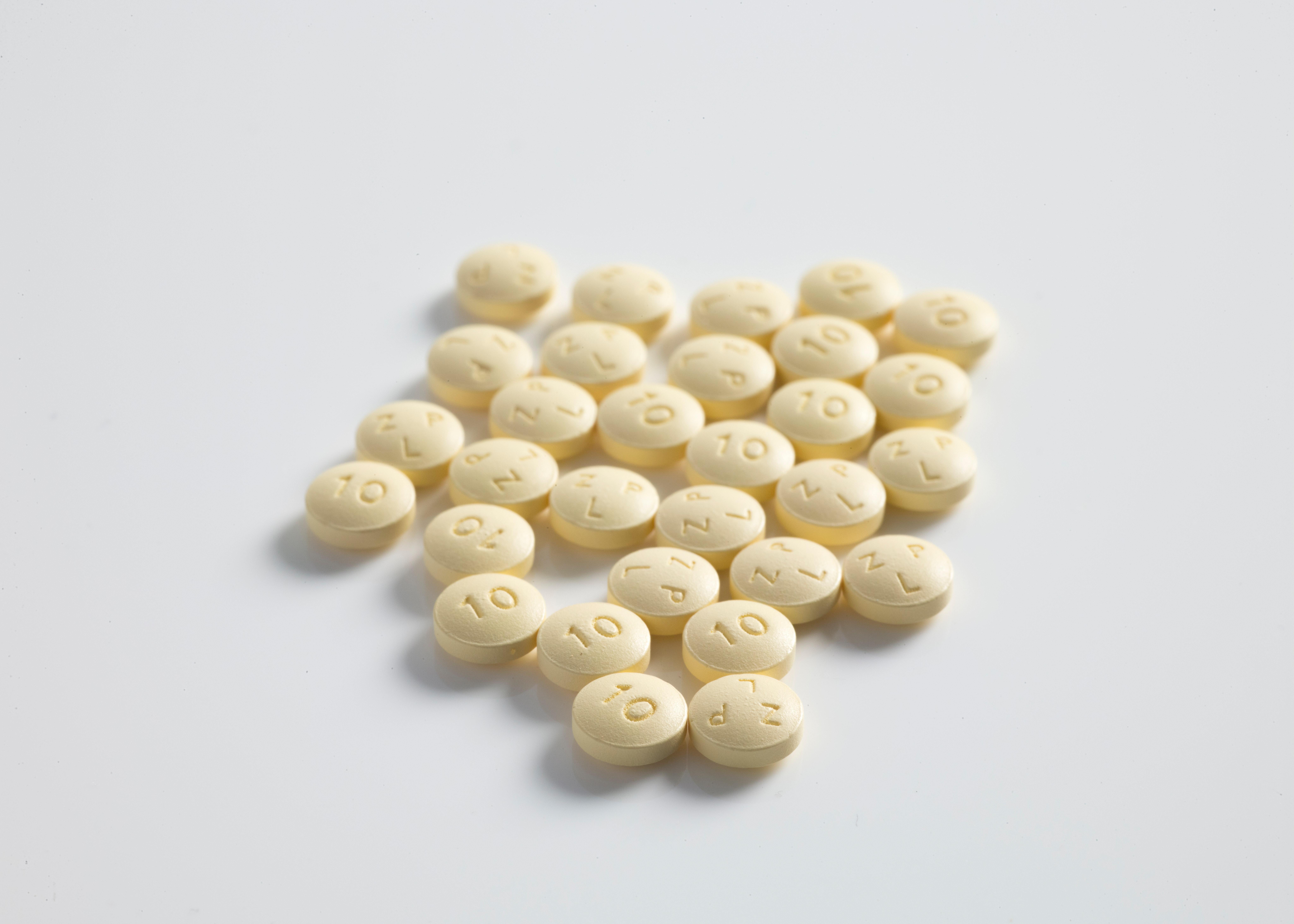Nutritional Psychiatry and Food Access
Food access in the developed world has never been better – we have greater access to nutritionally-dense foods than ever before. But this doesn't mean we're actually nourished – or happy. The typical American diet consists of heavily processed foods that are packed full of sugar and contain artificial additives – a recipe for poor physical and mental health.
Nutrient deficiencies exacerbate depression, anxiety, bipolar disorder, schizophrenia and ADHD. It makes sense – the brain can't function optimally if it's deprived of the nutrients it needs. In 2017, a cross-sectional study found that adults who ate fast food more than three times a week were more likely to experience extreme levels of ongoing mental distress. The diets that were associated with the worst mental health issues were devoid of essential nutrients and rich in omega-6 fatty acids and trans-fats – these types of fats are associated with low-grade inflammation, and eating them can cause symptoms of anxiety and depression. The study also found that adults who ate a clean diet rich in antioxidants and low in carbohydrates experienced better mental health1 – they were definitely not eating the standard American diet.
Mainstream medicine has been slow to catch on to what nutritionists have understood about food and mood for decades. Psychiatrists are noticing the steadily growing body of evidence that shows that nutrition is fundamental to good mental health2 – but they're still seeing dietary changes as a complementary therapy rather than a primary treatment. Antidepressants are still the go-to treatment, when the most effective – and safe – intervention is actually nutritional advice.Nutritional Psychiatry vs. Anti-Depressants: The Truth
Thirty years ago, less than one in 50 Americans took antidepressant medications. Now it's more like one in nine adults, and recent statistics from pharmaceutical companies show that 2,100,315 American children are also taking these drugs3. Depression is the leading cause of disability in the world, and these drugs have been designed to boost and stabilise moods — but do they do more harm than good?
The list of side effects from antidepressant drugs is extreme, and includes symptoms of the very conditions the medications are meant to treat... side effects like “suicidal thoughts and actions”. That's right – the medication that is meant to treat your depression can make you want to die. Teens and children are at the highest risk of committing suicide as a result of taking antidepressants, but it can happen to anyone at any age.
A popular antidepressant, paroxetine (sold as Paxil), was prescribed to more than two million children and countless adults in the USA before warnings emerged that it could (and frequently did) cause suicidal behaviour. It turns out that the drug had been marketed to doctors on the basis of false research that downplayed the risks of suicidal behaviour and other extreme side effects. Recent data from patient records has shown that there was absolutely no evidence that the drug worked for depression. Plus, there were even more cases of serious incidents in patients taking Paxil than first thought — incidents like extreme self harm, psychiatric admissions, and suicide attempts4.
Dr. David Healy, a British psychopharmacologist, agrees that antidepressant medications are overprescribed and dangerous. He's even stated that, “we have a situation where if you are following the evidence no-one should be using these drugs… In every single one of these trials [antidepressant medication] has produced more harms than benefits...”5. And he's not alone – there is a mounting body of evidence that science hasn't solved mental illness for the majority of people, and in many cases has made it worst6.
So why do doctors continue to prescribe these ineffective and dangerous medications? Research from the pharmaceutical companies continues to be released, assuring practitioners that these drugs are effective and safe – but even the best antidepressant research lacks scope and integrity. These papers only include studies on participants who have one type of mental illness, rely only on short-term 8 week trials, and rarely mention real-world statistics. They are performed on people (or animals) that have never taken other kinds of psychiatric medications – something that is very uncommon in the real world7.
Luckily, a growing number of industry watchdogs and nutritional psychiatrists are pushing for more real-world studies, and are calling for transparency around how effective antidepressants actually are – or aren't. Psychiatry is going to have to admit that there is something missing.
That missing piece is nutrition.
Nutritional Psychiatry: Fixing Mental Health by Addressing Root Causes
Antidepressants, other psychiatric medications, and nutritional psychiatry have something in common: they all work on neurotransmitter pathways within the brain.
Neurotransmitters are chemical messengers that control our moods, thoughts, and perceptions, and they have effects on all areas of the body. For example, serotonin is a neurotransmitter that promotes feelings of happiness, and stabilises our moods – and low levels are associated with depression. Antidepressant medications called SSRIs – serotonin re-uptake inhibitors – work by boosting serotonin in the brain, through a process of blocking its metabolism. But nutritional psychiatry works deeper, by boosting the nutrient co-factors that the body needs to make serotonin in the first place, and the co-factors that serotonin needs to do its job. Without the life-threatening side effects of SSRIs.

While pharma-psychiatry tries to patch up a broken system, nutrition finds the cause and corrects it. A 2017 review concluded that low levels of zinc, magnesium, omega-3 fatty acids, vitamin D, and vitamin B3 can contribute to symptoms of depression, anxiety, mood swings, and Alzheimer's disease – and taking nutritional supplements relieves these symptoms without having to take pharmaceutical medications8. Sure enough, these nutrients are needed for the production and function of neurotransmitters including serotonin – but also dopamine, GABA, and aldosterone, which all impact moods and mental health as much as serotonin. While pharmaceutical interventions like SSRIs only target one or two neurotransmitters, nutritional psychiatry can target multiple pathways at once.
Going even deeper, it's now established that mental illnesses are characterized by inflammation in the brain. Rather than targeting the already-stressed brain with pharmaceutical drugs, nutritional psychiatric addresses the underlying cause of inflammation throughout the body – this often starts in the gut and from the nutrients we eat (or fail to eat). Remember the study that found that experience better mental health if their diets were rich in antioxidants and low in carbohydrates? This may be because antioxidants and low carb diets reduce inflammation throughout the body, including the gut and the brain. The Standard American diet, packed with pro-inflammatory fats and additives, is a recipe for full body inflammation and mental illness.
Good news – diet can have a quick, positive impact on mental health. Eating a plant-based whole food diet has been shown to:
- Improve mood 9
- Protect against depression10
- Reduce anxiety11
- Improve behaviour in adolescents12
Nutritional Psychiatry: Main Dietary Foundations for Mental Health
Big diet changes are needed to fix serious mental health problem. These four dietary foundations are necessary for good mental health:
- Plant-Based
- Low carbohydrate
- Fibre-rich
- Rich in key nutrients for mental health
Here's how to do it –
1. Nutritional Psychiatry and Plant-Based Diets for Mental Health
Eating a processed omnivorous diet cause inflammation throughout the body. Processed meat and animal products contain toxins, carcinogens, and even nutrients that set off cascades of inflammation signals throughout the body. Just one example is omega-6. Animal meat, eggs and dairy are rich in omega-6 fatty acids – these are pro-inflammatory fats that stress the immune and nervous systems. All processed meat and animal products contain huge amounts of these fatty acids, resulting in mood-disrupting inflammation throughout the body and the brain.

Inflammation causes direct damage to neurons and neurotransmitter receptors in the brain, and it stops the gut from being able to absorb essential nutrients. It interferes with chemical signals, and can even cause the immune system to attack the brain. All of this translates to mental illnesses caused by “crossed wires” where neurons don't fire at the right time and neurotransmitters are thrown out of balance13.
On the other hand, a whole food plant-based diet protects the brain and nervous system by being low in omega-6 fats and high in anti-inflammatory nutrients. As a result, vegans experience less stress and anxiety than omnivores14, and a 2018 study found that following a plant-based diet reduces symptoms of depression while improving measures of over-all mood and quality of life15.
- A 2012 study showed that eliminating meat and animal products from the diet improved participants' moods within just two weeks16.
- In 2018, a leading nutritional psychiatry researcher, Dr. Felice Jacka, led the world's first study that showed that diet can improve major clinical depression. The results demonstrated that eating more vegetables and less animal products directly improves all symptoms of depression17.
Eat: Fresh vegetables, fruit, lentils, chickpeas, beans, nuts, seeds, nut milk, nut butter, quinoa.
Eliminate: All kinds of meat – beef, pork, lamb, chicken, fish, etc. Animal products – e.g. eggs, milk, yoghurt, cheese, ice cream.
2. Nutritional Psychiatry: How Low Carbohydrate Diets Support Your Brain
The amount of carbohydrates you do or don't eat directly affects the health of your brain. Low carbohydrate diets have been prescribed for over 100 years as a primary treatment for drug-resistant epilepsy and are effective for reducing the frequency of seizures. In recent research, low carb diets have shown promise for managing Parkinson's disease, multiple sclerosis and chronic headaches. Following this trend, researchers are now looking at the impact of carbs on psychiatric disorders.

In 2012, two case studies were published regarding low carb diets and bipolar disorder. While these were super small in terms of scope, they clearly showed that eating a low carbohydrate diet was superior to taking the mood stabiliser lamotrigine (Lamictal) for managing symptoms 18.
Low carb diets have been documented to:
- Manage symptoms of schizophrenia19
- Improve complex social behaviours in people with autism spectrum disorder20
- Significantly relieve symptoms of depression21
- Improve feelings of self-esteem22
Aim for a ratio of 40/30/30 – this means getting 40% of your total caloric intake from carbohydrates, 30% from protein and 30% from fat. Build each meal around fats rather than protein.
Eat: Nuts; seeds; avocado; tahini; coconut yoghurt; nut butters; small amounts of legumes and beans; quinoa; organic fruit with a low-glycemic index like cherries, grapefruit and strawberries; low glycemic index vegetables like leafy greens.
Eliminate: Sugar; potatoes; candy; cakes; soda; grains and grain products like rice, wheat, pasta, bread and cereal.
3. Nutritional Psychiatry: Nurturing the Gut-Brain Connection with Fibre & Fermented Foods
Did you know that your brain and your gut developed from the same tissue in utero? And they're still intimately linked – billions of nerves and chemical messengers send constant communication between these two parts of the body. If you've ever experienced butterflies in your stomach when you've been nervous or excited, then you can understand how mood affects the gut – but researchers now understand that the gut's influence on the brain is even more important.

95% of the body's serotonin (the feel-good neurotransmitter that antidepressant medications are trying to boost) is actually produced in the gut. The gut and the good bacteria that live there in the “microbiome” also produce other chemicals like GABA, a lesser-known neurotransmitter that promotes feelings of peace, reduces anxiety, and ensures we get a good night's sleep. But the process of creating these chemicals is inhibited if there is anything wrong in the gut. Low-grade inflammation, parasites, and toxins in the intestines alter the function of the gut and the microbiome. This kind of dysfunctional gut environment contributes to mental health conditions like depression, anxiety, obsessive-compulsive disorder, and schizophrenia23.
It makes sense that taking care of your gut health can significantly improve your mental heath. Here's how to do it:
High Fibre: A high-fibre plant-based diet is the first step. Fibre feeds the beneficial bacteria found in the gut and reduces inflammation. Fibrous food also draws out any nasties in the gut that could be contributing to mental health issues – parasites, toxins, and even used-up hormones can affect the brain/gut axis and cause mental disturbances. Fibre “grabs” onto these on its way through the bowels and excretes them out of the body.
Eat: Whole foods. Eat fresh vegetables at every meal.
Eliminate: Processed foods
Fermented Vegetables: Fermenting vegetables increases the number of beneficial bacteria in the food's microbiome. By regularly eating fermented foods like organic kim chi or sauerkraut, you can boost the population of gut bugs in your own microbiome, reduce inflammation in your gut, and increase the synthesis of feel-good neurotransmitters.
Eat: Kim chi, sauerkraut, fermented pickles.
4. Nutritional Psychiatry: Key Nutrients That Work Better Than Antidepressants
Boost these six nutrients in your diet and see how your symptoms change before you decide to take antidepressant drugs:
- Magnesium is a cofactor in the production of most neurotransmitters, including serotonin. Believe it or not, antidepressant drugs deplete magnesium out of the body. Taking magnesium citrate supplements has been shown to improve mood in cases of depression and anxiety [8], and you can also boost your intake by eating lots of green vegetables, nuts, seeds and legumes.

- B group vitamins are used in the production of cellular energy, especially within brain cells. Vitamin B3, vitamin B12, and vitamin B5 are well-researched for their roles in depression and anxiety24 and guess what? Yep, antidepressants and antipsychotic medications inhibit their absorption. Get more B vitamins in your diet by eating green vegetables, legumes, sweet potatoes and citrus fruits.
- Vitamin C deficiency causes symptoms of depression, mood swings, and even dementia25. This water-soluble nutrient combats inflammation, but it is used up and excreted quickly when the body and mind are under any type of stress – and if you're taking SSRIs, mood stabilisers, Adderall or antipsychotic medications. Boost your vitamin C levels with red bell peppers, kiwi fruits and citrus fruits.
- Iron deficiency doesn't always show up as fatigue and paleness – sometimes the only symptom is anxiety or depression. It makes sense – the brain needs oxygen to function, and iron is necessary for the transport of oxygen through the blood. Get your levels checked before you take a supplement, but boost your dietary intake right away by eating lots of spinach, quinoa, pumpkin seeds, and white beans.
- Selenium is an essential mineral and one of the most powerful antioxidants you can eat. Taking selenium supplements has been shown to prevent many types of mental health conditions including postpartum depression26. The best source of selenium? Brazil nuts!
- Zinc is required for brain growth and neuron function. People with depression often have low levels of zinc – this is especially concerning because research has found that having low levels of this essential mineral can make your brain resistant to antidepressant medications27. Better fix that zinc deficiency before you even consider taking meds! But you may not even need them after you've boosted your intake – zinc supplementation has been shown to improve all symptoms of depression28. Get zinc in you diet sunflower seeds, pumpkin seeds, cashews, chickpeas and lentils.
Nutritional psychiatry assesses and treats each person's own nutrient requirements individually. Some nutritional supplements can interfere with medications or cause exacerbations of existing conditions, so stick to a whole food diet and speak to a qualified nutritionist for personalised advice about supplements.
Simple diet changes can reduce inflammation and increase neurotransmitter production. Start today. You can target the underlying cause of mental illnesses by eating a low carbohydrate plant-based diet with fermented veggies and lots of essential nutrients.
References:
- Begdache, L., et al. (2017) Assessment of dietary factors, dietary practices and exercise on mental distress in young adults versus matured adults: A cross-sectional study. Nutritional Neuroscience, 1–11. doi:10.1080/1028415x.2017.1411875
- Sarris, J., et al. (2015) Nutritional medicine as mainstream in psychiatry. Lancet Psychiatry., 2:3, 271 – 274. https://www.ncbi.nlm.nih.gov/pubmed/26359904
- CCHR International The Mental Health Watchdog (2018) Number of Children & Adolescents Taking Psychiatric Drugs in the U.S. https://www.cchrint.org/psychiatric-drugs/children-on-psychiatric-drugs/
- Le Noury, J., et al. (2015) Restoring Study 329: efficacy and harms of paroxetine and imipramine in treatment of major depression in adolescence. BMJ., 351, 4230. https://www.bmj.com/content/351/bmj.h4320
- BBC News (2018) Teenage antidepressants 'doing more harm than good'. https://www.bbc.com/news/uk-scotland-42917452
- Penn, E. & Tracy, D. K. (2012) The drugs don’t work? antidepressants and the current and future pharmacological management of depression. Ther Adv Psychopharmacol., 2:5, 179 – 188. https://www.ncbi.nlm.nih.gov/pmc/articles/PMC3736946/
- Cipriani, A., et al. (2018) Comparative efficacy and acceptability of 21 antidepressant drugs for the acute treatment of adults with major depressive disorder: a systematic review and network meta-analysis. The Lancet., 391:10127. https://www.thelancet.com/journals/lancet/article/PIIS0140-6736(17)32802-7/fulltext
- Marx, W., et al. (2017) Nutritional psychiatry: the present state of the evidence. Proc Nutr Soc., 76:4. https://www.ncbi.nlm.nih.gov/pubmed/28942748
- Beezhold, B. L., et al. (2010) Vegetarian diets are associated with healthy mood states: a cross-sectional study in Seventh Day Adventist adults. Nutr J., 9, 26. https://www.ncbi.nlm.nih.gov/pmc/articles/PMC2887769/
- Akbaraly, T. N., et al. (2009) Dietary pattern and depressive symptoms in middle age. Br J Psychiatry., 195:5, 408 – 413. https://www.ncbi.nlm.nih.gov/pubmed/19880930
- Akbaraly, T. N., et al. (2009) Dietary pattern and depressive symptoms in middle age. Br J Psychiatry., 195:5, 408 – 413. https://www.ncbi.nlm.nih.gov/pubmed/19880930
- Akbaraly, T. N., et al. (2009) Dietary pattern and depressive symptoms in middle age. Br J Psychiatry., 195:5, 408 – 413. https://www.ncbi.nlm.nih.gov/pubmed/19880930
- Müller, N., et al. (2015) The role of inflammation in schizophrenia. Front Neurosci., 9, 372. https://www.ncbi.nlm.nih.gov/pmc/articles/PMC4612505/
- Beezhold, B., et al. (2015) Vegans report less stress and anxiety than omnivores. Nutr Neurosci., 18:7, 289 – 296. https://www.ncbi.nlm.nih.gov/pubmed/25415255
- Toumpanakis, A., et al. (2018) Effectiveness of plant-based diets in promoting well-being in the management of type 2 diabetes: a systematic review. BMJ Open Diabetes Res Care., 6:1, e000534. https://www.ncbi.nlm.nih.gov/pmc/articles/PMC6235058/
- ] Beezhold, B. L. & Johnston, C. S. (2012) Restriction of meat, fish, and poultry in omnivores improves mood: A pilot randomized controlled trial. Nutr J., 11:9. https://www.ncbi.nlm.nih.gov/pubmed/25415255
- Jacka, F. N., et al. (2017) A randomised controlled trial of dietary improvement for adults with major depression (the ‘SMILES’ trial). BMC Med., 15, 23. https://www.ncbi.nlm.nih.gov/pmc/articles/PMC5282719/
- Phelps, J. R., et al. (2012) The ketogenic diet for type II bipolar disorder. Neurocase, 19:5, 423 – 426. https://www.ncbi.nlm.nih.gov/pubmed/23030231
- Kraft, B. D. & Westman, E. C. (2009) Schizophrenia, gluten, and low-carbohydrate, ketogenic diets: a case report and review of the literature. Nutr Metab (Lond). doi: 10.1186/1743-7075-6-10
- Castro, K., et al. (2015) Effect of a ketogenic diet on autism spectrum disorder: A systematic review. Research in Autism Spectrum Disorders, 20, 31 -38. https://www.sciencedirect.com/science/article/pii/S1750946715001099
- Galletly, et al. (2007) Psychological benefits of a high-protein, low-carbohydrate diet in obese women with polycystic ovary syndrome--a pilot study. Appetite., 49:3, 590- 593. https://doi.org/10.1016/j.appet.2007.03.222
- Galletly, et al. (2007) Psychological benefits of a high-protein, low-carbohydrate diet in obese women with polycystic ovary syndrome--a pilot study. Appetite., 49:3, 590- 593. https://doi.org/10.1016/j.appet.2007.03.222
- Fehér, J., et al. (2011) Role of gastrointestinal inflammations in the development and treatment of depression. Orv Hetil, 152:37, 1477 – 1485. https://www.ncbi.nlm.nih.gov/pubmed/21893478
- Kennedy, D. O. (2016) B Vitamins and the Brain: Mechanisms, Dose and Efficacy—A Review. Nutrients., 8:2, 68. https://www.ncbi.nlm.nih.gov/pmc/articles/PMC4772032/
- Cornish, S. & Mehl-Madrona, L. (2008) The Role of Vitamins and Minerals in Psychiatry. Integr Med Insights., 3, 33 – 42. https://www.ncbi.nlm.nih.gov/pmc/articles/PMC3046018/
- Wang, J., et al. (2018) Zinc, Magnesium, Selenium and Depression: A Review of the Evidence, Potential Mechanisms and Implications. Nutrients, 10:5, 584. https://www.mdpi.com/2072-6643/10/5/584
- Wang, J., et al. (2018) Zinc, Magnesium, Selenium and Depression: A Review of the Evidence, Potential Mechanisms and Implications. Nutrients, 10:5, 584. https://www.mdpi.com/2072-6643/10/5/584
- Ranjbar, E., et al. (2013) Effects of Zinc Supplementation in Patients with Major Depression: A Randomized Clinical Trial. Iran J Psychiatry., 8:2. https://www.ncbi.nlm.nih.gov/pmc/articles/PMC3796297/
